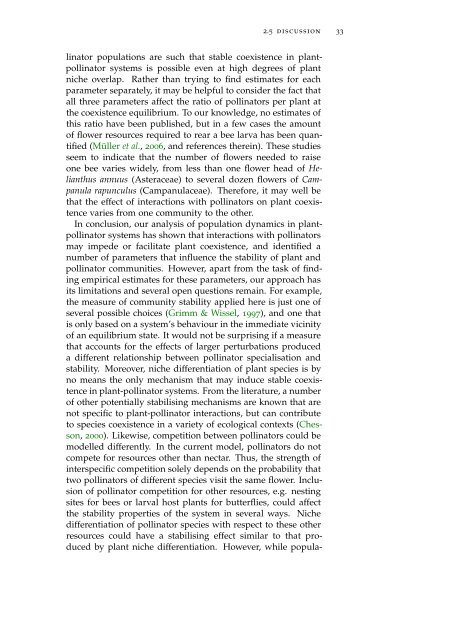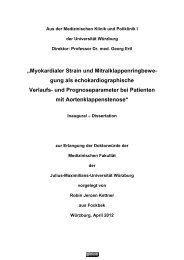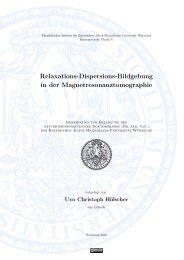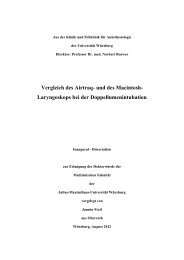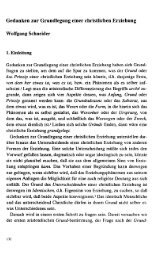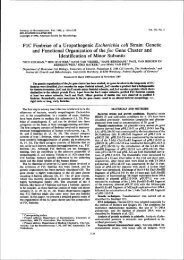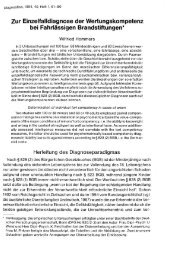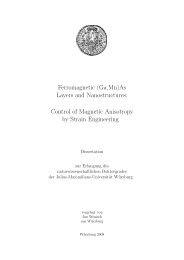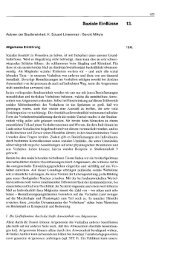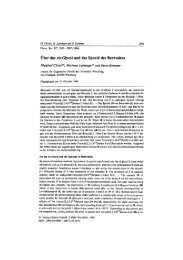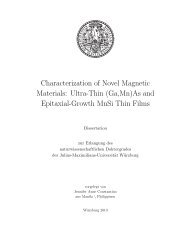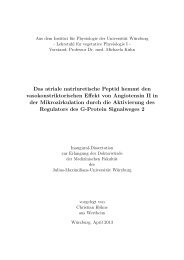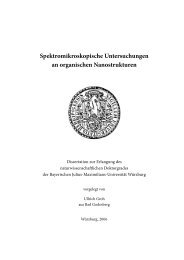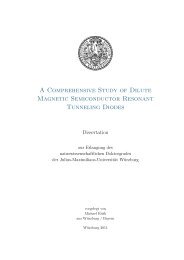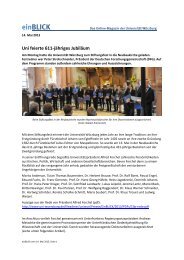Linking Specialisation and Stability of Plant ... - OPUS Würzburg
Linking Specialisation and Stability of Plant ... - OPUS Würzburg
Linking Specialisation and Stability of Plant ... - OPUS Würzburg
Create successful ePaper yourself
Turn your PDF publications into a flip-book with our unique Google optimized e-Paper software.
2.5 discussion 33<br />
linator populations are such that stable coexistence in plantpollinator<br />
systems is possible even at high degrees <strong>of</strong> plant<br />
niche overlap. Rather than trying to find estimates for each<br />
parameter separately, it may be helpful to consider the fact that<br />
all three parameters affect the ratio <strong>of</strong> pollinators per plant at<br />
the coexistence equilibrium. To our knowledge, no estimates <strong>of</strong><br />
this ratio have been published, but in a few cases the amount<br />
<strong>of</strong> flower resources required to rear a bee larva has been quantified<br />
(Müller et al., 2006, <strong>and</strong> references therein). These studies<br />
seem to indicate that the number <strong>of</strong> flowers needed to raise<br />
one bee varies widely, from less than one flower head <strong>of</strong> Helianthus<br />
annuus (Asteraceae) to several dozen flowers <strong>of</strong> Campanula<br />
rapunculus (Campanulaceae). Therefore, it may well be<br />
that the effect <strong>of</strong> interactions with pollinators on plant coexistence<br />
varies from one community to the other.<br />
In conclusion, our analysis <strong>of</strong> population dynamics in plantpollinator<br />
systems has shown that interactions with pollinators<br />
may impede or facilitate plant coexistence, <strong>and</strong> identified a<br />
number <strong>of</strong> parameters that influence the stability <strong>of</strong> plant <strong>and</strong><br />
pollinator communities. However, apart from the task <strong>of</strong> finding<br />
empirical estimates for these parameters, our approach has<br />
its limitations <strong>and</strong> several open questions remain. For example,<br />
the measure <strong>of</strong> community stability applied here is just one <strong>of</strong><br />
several possible choices (Grimm & Wissel, 1997), <strong>and</strong> one that<br />
is only based on a system’s behaviour in the immediate vicinity<br />
<strong>of</strong> an equilibrium state. It would not be surprising if a measure<br />
that accounts for the effects <strong>of</strong> larger perturbations produced<br />
a different relationship between pollinator specialisation <strong>and</strong><br />
stability. Moreover, niche differentiation <strong>of</strong> plant species is by<br />
no means the only mechanism that may induce stable coexistence<br />
in plant-pollinator systems. From the literature, a number<br />
<strong>of</strong> other potentially stabilising mechanisms are known that are<br />
not specific to plant-pollinator interactions, but can contribute<br />
to species coexistence in a variety <strong>of</strong> ecological contexts (Chesson,<br />
2000). Likewise, competition between pollinators could be<br />
modelled differently. In the current model, pollinators do not<br />
compete for resources other than nectar. Thus, the strength <strong>of</strong><br />
interspecific competition solely depends on the probability that<br />
two pollinators <strong>of</strong> different species visit the same flower. Inclusion<br />
<strong>of</strong> pollinator competition for other resources, e.g. nesting<br />
sites for bees or larval host plants for butterflies, could affect<br />
the stability properties <strong>of</strong> the system in several ways. Niche<br />
differentiation <strong>of</strong> pollinator species with respect to these other<br />
resources could have a stabilising effect similar to that produced<br />
by plant niche differentiation. However, while popula-


